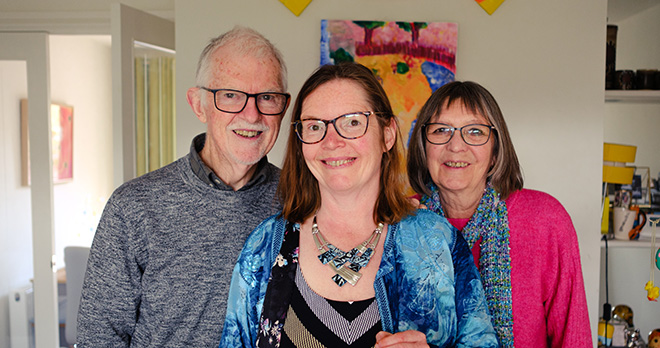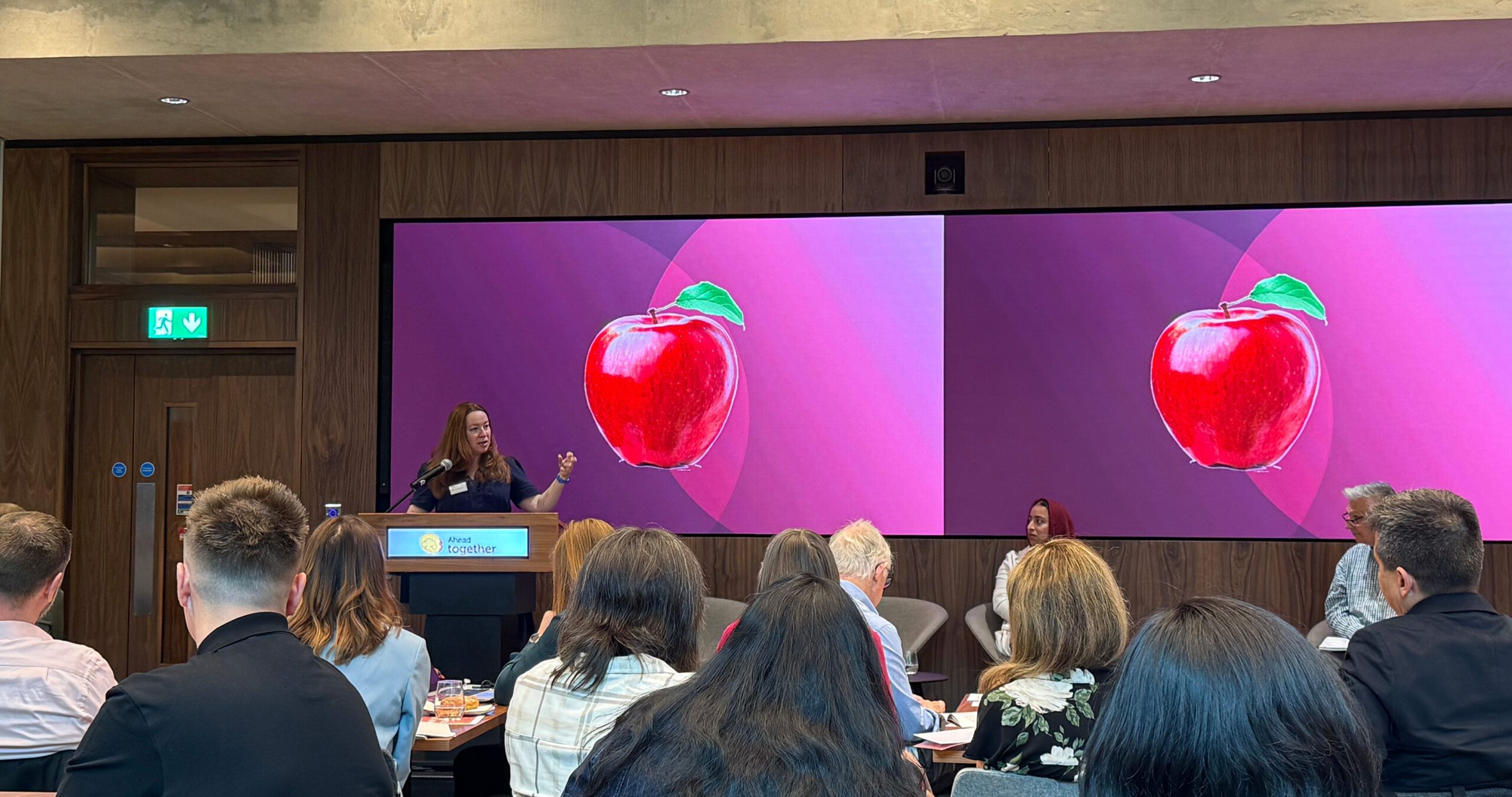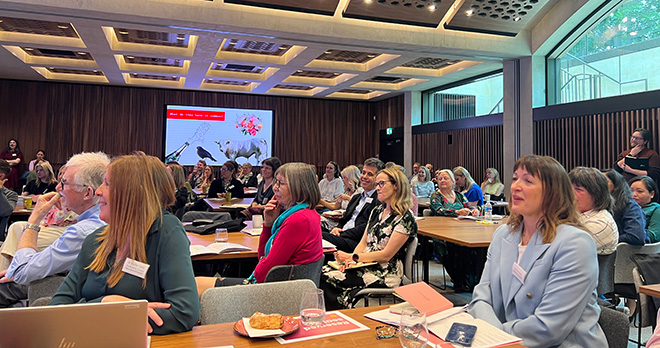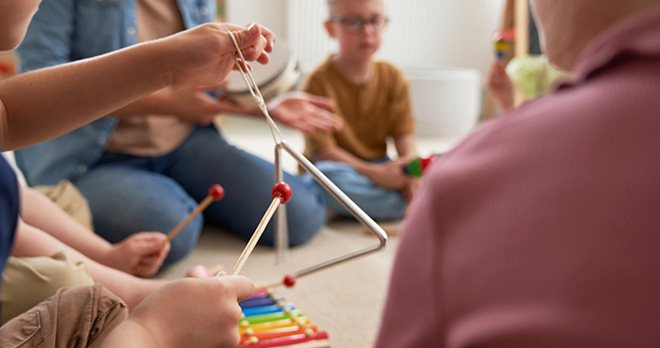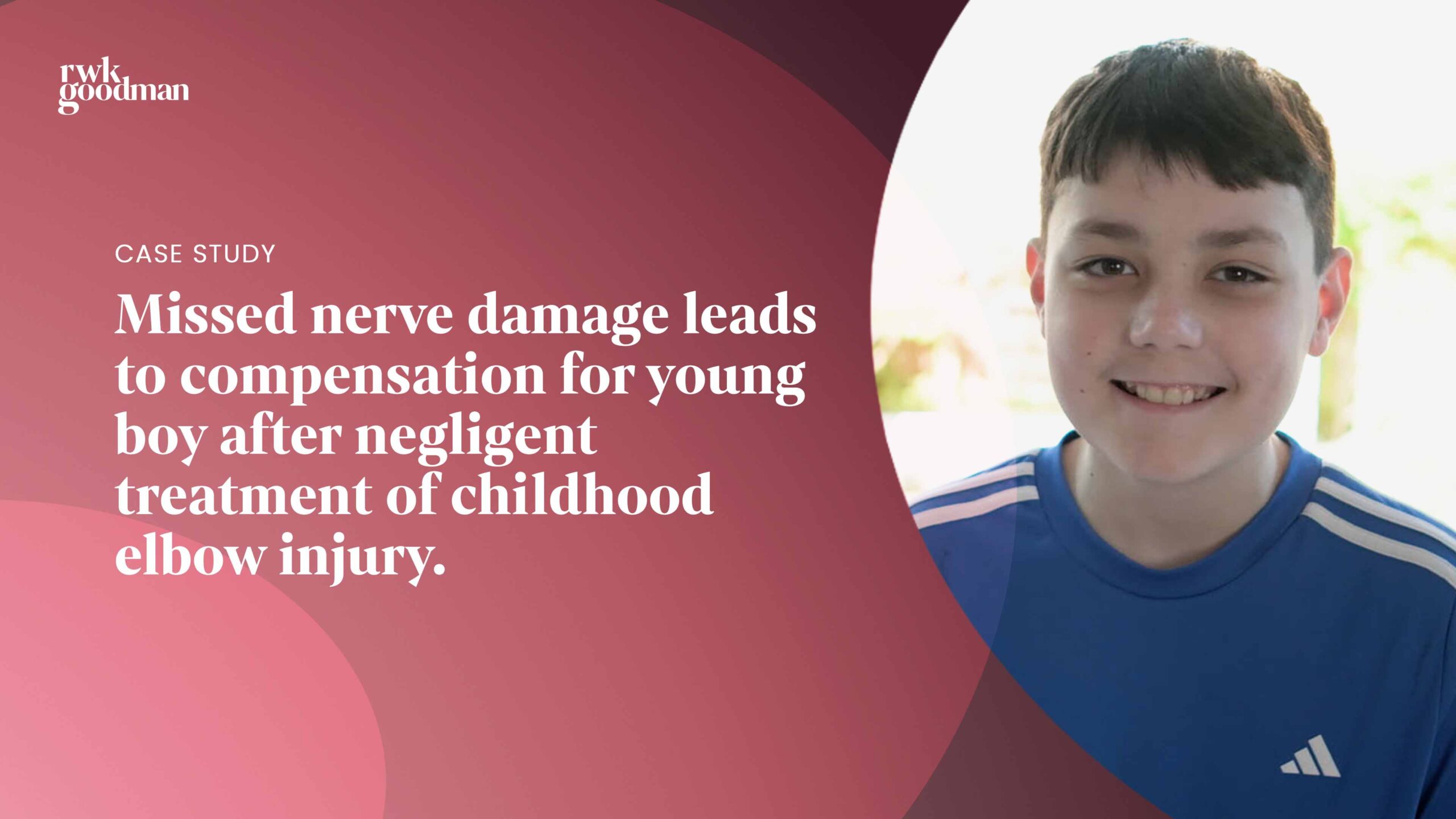Keeping Families in View: Enhancing family-sensitive practices in brain injury litigation
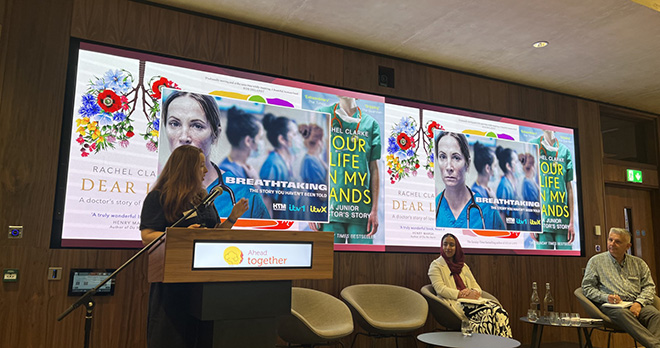
Authored by Dr Gaby Parker, Consultant Clinical Neuropsychologist and Expert Witness & Dr Audrey Daisley, Consultant Clinical Neuropsychologist.
Introduction
When a family member sustains a brain injury, the litigation process that may follow can be highly complex and emotionally demanding for their family, at a time when they may already be carrying the impact of loss, uncertain futures, and care responsibilities.
In this article, we write from different but complementary roles; one of us holding the perspective of a treating clinical neuropsychologist (Dr Daisley), and one as an expert witness (Dr Parker). Having worked together on the Ahead Together conference over a few years, we have often discussed the ways in which litigation impacts families following brain injury. We have reflected on recent position papers, shared in online forums, which focus on the impact of expert witness assessments on the injured person and how practitioners can mitigate this impact whilst adhering to their responsibilities to the Court1,2. This led us to consider the value that might be added by focusing on the impact on family.
We use ‘family’ as a shorthand for the personal system of support around the injured person, recognising that this may include a range of supporters whether related or otherwise. We are focusing primarily on expert assessments by clinicians (e.g., medics, nurses, allied health professions, practitioner psychologists) but there may be helpful reflections here for non-clinical experts, such as those offering opinion on accommodation needs.
In sharing our perspectives, we affirm the importance of independent, rigorous expert assessments in securing fair and just outcomes for claimant and defendant parties following serious injury or clinical negligence. We take a broad, systemic view, recognising that these challenges sit at the intersection of clinical, legal, and family systems. Our aim is not to critique, but to offer constructive ideas to enhance family-focused practice based on our reflections on the dilemmas and challenges that may arise in this process and what might help expert witnesses engage sensitively with families without compromising their independence and wider responsibilities to the Court.
1 King, H, Latimer-Sawyer, W, Corby, G, Solon, M, Moore, S, Herman, D, Ramanuj, P, Brewin, C, Greenberg, & Beadman, M. (2025). How to reduce the re-traumatisation of claimants in medico-legal litigation claims. In submission. Personal communication, P. Ramanuj 27 August 2025
2 Mosby (2025) Commentary on King et al (2025) How to reduce the re-traumatisation of claimants in medico-legal litigation claims. Published online 13 June 2025
The role of expert assessments
In civil litigation following a brain injury, expert witnesses are responsible for providing opinion on the nature and extent of the injury, its likely causes, and the short- and long-term consequences for the individual’s daily life, employment, and future care needs. Their assessments help the court to quantify damages based on the reasonable needs that the injury has caused. Expert witnesses are bound by the Civil Procedure Rules (CPR Part 35); their responsibility is to the court, not to the party instructing them. This means they must provide independent opinions, remain objective, and avoid advocacy for either side.
Depending on their injury and needs, claimants may see many different experts over the course of their litigation, including neurologists, neuropsychiatrists, neuropsychologists, allied health professionals (e.g., physiotherapy, OT, SLT), and experts in care, accommodation or assistive technology. Although there are cases where both claimant and defendants will instruct a single joint expert, it is much more common for each party to instruct different experts. It is common for claims to be conducted over several years, with experts needing to assess several times to provide a reliable, final opinion. As such, injured people and their families are likely to undergo a high number of expert appointments across the lifespan of the claim.
The opinions that expert witnesses provide are scrutinised closely by the court, and experts can be heavily criticised if they fail to carry out their duties with appropriate care, rigour, and in adherence to their CPR Part 35 responsibilities. Within our own profession, there have been a number of important judgments which have emphasised the high standards expected of expert neuropsychologists during interviews and assessments3, that they must take care to avoid making assumptions or using pejorative language4, and that they must ensure that their opinion is entirely their own, and not led by the views of supervisors or senior colleagues5. Experts no longer have any right to immunity from being sued if their work on a case is found to be negligent and impacts the outcome for the claimant6. With these rulings, and with fundamental dishonesty increasingly raised as an issue even in cases where severity of injury is not disputed7, experts may find themselves feeling increasingly under pressure and uncertain how best to balance clinical sensitivity with medicolegal responsibilities.
Accordingly, expert witness appointments are very different to those with treating clinicians; they are often longer in duration and will be more formal in nature and are followed by detailed reports on the person’s condition and prognosis. The assessment and report may not address the family perspective or needs, depending on the questions posed to the expert with their instructions.
Family Experiences of the expert witness process: Common Challenges
Within a brief article, it is impossible to do justice to the gamut of experiences families may have during expert assessments. We highlight here some of the experiences we have heard most commonly, and our reflections on what experts, their instructing parties, and (where appropriate) treating clinicians can do to promote family-sensitive practices in this work. We take the position that taking a family-sensitive view is likely to support engagement in the process, which in turn helps ensure a robust assessment of needs for the person and their family.
Re-exposure to trauma
Alongside the injured person, family members are often asked to recount painful events in detail. They may be exposed vicariously to trauma experienced by the injured person, or have experienced trauma directly themselves (for example, if they were also involved in or witnessed the index events; or connected with medical treatments or ‘turning points’ in the injured person’s acute care). In some cases, families describe experts asking about elements which do not seem clearly related to their instructions or probing for a level of detail which they find hard to understand being needed. We note this was also highlighted in King et al (2025). In other cases, family members describe re-traumatisation through exposure to graphic images of injuries, or to CCTV of the index event. Whilst there can be good reasons for these materials to be viewed, where this occurs without appropriate preparation and support families may experience this as distressing and destabilising.
Whilst experts can take care to explore events and responses sensitively and carefully, their assessments are by definition non-therapeutic. They may be experienced by families as emotionally exposing, given that they involve unfamiliar professionals. One family member described this as ‘being forced to open a book I didn’t want to read again, and having to turn straight to the most painful chapters’. In turn, this may impact on engagement and progress in treatment, and add to the emotional cost of litigation.
Disruption to stretched routines
Expert assessments enter the diaries of the injured person and family in ways that may not feel under their control. It is common for assessments to occur ‘in waves’ as the case progresses, and for clients and families to be assessed by professionals instructed by both their own solicitors and those of the defendants. This may create ‘pinch points’ where the weight of assessments falls particularly heavily. Families describe appointments being scheduled for times that do not take account of the wider needs in their system, such as working hours, childcare commitments, religious festivals or cultural observances. For example, it is not uncommon for families to tell us that expert witness assessments have been scheduled during school holidays or weekends when no childcare is available. Families may have no options but to cancel important plans with their children, reorganise work commitments at short notice, or attend meetings when distracted by competing responsibilities. Whilst the importance of timely, thorough expert assessments is acknowledged, and families may feel their needs are ‘minor’ in comparison, the demands of juggling competing responsibilities may come with significant emotional cost. The demands may be particularly high on Litigation Friends. As with re-traumatisation, these additional demands may ultimately accumulate to impact on engagement in treatment or medicolegal processes to their best extent.
Intersection with identities: race, culture, gender, social class and more
Families do not enter the litigation process as ‘blank slates’. They bring with them customs, traditions, gender norms, religious practices and socio-economic realities that shape how they may experience expert witness assessments. When these are not held in mind in the medicolegal process, the family may feel under pressure or that their realities are not respected, and in turn there may be barriers or limitations to the effectiveness of the expert assessment. For example, a Muslim woman may find it inappropriate to discuss intimate aspects of her partner relationship with a male assessor or families from lower income households may feel judged for their living circumstances where home visits are offered. When cultural and relational sensitivities are not acknowledged, families may withdraw, provide guarded responses, or feel disrespected which ultimately undermines the purpose and quality of the assessment.
When families hear different messages
It is not uncommon for families to encounter differences of opinion between treating clinicians and expert witnesses. Treating teams work closely with families over time within a therapeutic alliance, whereas expert witnesses typically enter the picture for a ‘stand-alone’ assessment at various points during the litigation process. Understandably, this can lead to variation in perspectives or recommendations.
When expert and treating clinicians disagree, families can feel caught in the middle, leading to confusion, destabilisation and even invalidation of the work the injured person and their family have already invested in rehabilitation. Families may feel unsure whose opinion to trust. Whilst experts must give their full, independent opinion (including where they think treatment has not been optimal) in our view it is important that this objectivity is accompanied by and delivered with therapeutic sensitivity to reduce the risk of iatrogenic harm where differences of opinion arise.
Such differences of opinion can also ripple beyond the family. If families act immediately on recommendations shared informally by the expert during assessment, which the treating team have not yet had time to consider fully, there is the potential for unintended unhelpful consequences. For example, plans being implemented without adequate risk assessment, or a family feeling compelled to push for interventions that funding is not available for, or which the team cannot safely or sustainably deliver. This not only impacts the family’s trust in the process but may also leave treating clinicians feeling undermined, which can strain their relationships with the family. Legal professionals may be left grappling with uncertainty in recoverability, or experience associated breakdowns in their own relationships with families.
Bringing a family-sensitive lens to expert assessments: some practice points
Throughout this article we have highlighted ways in which the expert witness process can create additional challenges for families. Reflecting on the above, we offer the following suggestions that may be helpful for expert and treating clinicians, as well as legal professionals, to hold in mind. Many of these are simple, practical suggestions that clinicians are likely to be applying already.
They are grouped into two categories:
- those primarily directed at Expert Witnesses, who interact directly with families during assessments; and
- those primarily directed at Solicitors and Case Managers, who play a crucial role in instructing experts and influencing when and how assessments take place.
Our intention is to support good practice that reduces unnecessary harm to families, enhances the quality of assessments, and sustains experts in their demanding role.
For expert witnesses:
-
Scheduling with sensitivity:
Where possible, ask about family routines and pressures before fixing appointments; strive to avoid major religious holidays, weekends and school breaks unless unavoidable. If timing is constrained, consider remote assessments (where clinically appropriate) or offering a flexible window of dates.
-
Preparation and consent:
Provide advanced warning of sensitive topics (e.g., intimacy, cultural practices, socio-economic circumstances) so that families can prepare emotionally or request adaptations.
-
Cultural and relational awareness:
Explore what would make families more comfortable (e.g. same-gender assessor for sensitive topics; respect for religious observances); use neutral respectful phrasing when asking about relationships roles or financial circumstances, avoiding judgemental undertones. Ask how cultural and religious practises shape daily life and adaptation post-injury.
-
Contextualised recommendations:
Hold the injured person at the centre of opinion but avoid assumptions about what getting life ‘back on track’ means; recommendations should be bespoke and culturally congruent, taking the family context into account where this is an important part of the injured person’s identity.
-
Managing differences with treating teams:
Review key records prior to the appointment and consider asking the instructing party for permission to interview treating clinicians to gather perspectives on interventions and challenges encountered; be transparent with families about the distinct functions of treating clinicians versus expert witnesses; frame differences of opinion carefully using neutral language that avoids undermining the existing therapeutic relationships (e.g. ‘the court asks me to consider the range of possibilities on what treatments or support are ideal or needed’ when asking about alternative possibilities); avoid on-the-spot recommendations that could disrupt treatment plans, and instead direct families back to treating teams to think through ideas they may have.
-
Acknowledge the emotional toll:
Expert witnesses should recognise the potential for vicarious trauma when repeatedly exposed to accounts of catastrophic injury, relational strain and distressing personal details. Monitoring for signs such as emotional numbing, intrusive imagery or irritability, and responding sensitively to these, is part of routine clinical practice. Experts should consider ways they can maintain psychologically safe conversations for families as well as the injured person.
-
Prioritise reflective support and training:
While supervision of opinion is not permissible, experts can and should seek out continuous training, mentorship or reflective practise spaces to sustain their competencies, promote well-being in work and prevent burnout. Medicolegal practice is demanding, time pressured, and carries risks of being criticised professionally if not carried out to a high standard in accordance with Part 35 responsibilities. We argue that training in trauma-informed practice, and in understanding familial impact of brain injury, should be seen as essential ongoing professional development for practitioners in this area of work. To these ends, we welcome the work of the British Psychological Society (BPS) and other expert witness registers to set standards for competency that not only include initial training but also require evidence of ongoing professional development to ensure the quality and effectiveness of expert witness practice.
For solicitors and case managers:
-
Instructions and scope:
Be clear in instructions about the specific purpose of the assessment; provide details about family schedules, pressures or challenging times of year to help experts offer family-sensitive timings for assessments.
-
Choice of expert:
Consider appointing experts more likely to be able to offer family-sensitive practices. Where compromises are required to balance these needs with instructing the most appropriate expert for the issues in the case (e.g., if only weekend or evening appointments can be offered), explain clearly to families why this expert has been chosen and why flexibility is limited. Explore ways to reduce the impact, for example, by considering childcare options or booking local consultation rooms.
-
Offer education/support about expert assessments:
Explain to the person and their family the purpose and nature of these appointments, how they are likely to be conducted, and what kinds of material will be covered in the appointment and afterwards in the report. This may need to be adapted to the existing understanding held, or the insight the person and their family have into the nature of injuries/disabilities post-injury.
-
Clarify boundaries for treating teams at an early stage:
Consider how well treating teams understand and are prepared for the medico-legal process. Ensure they are clear on their role and how their input will be used (e.g., set out how treatment notes, meetings, or opinions may be used within litigation) as this can prevent confusion further down the line for clinicians and families. Consider the impact that busy periods in expert assessments will have on rehabilitation progress and support needs, and plan ahead for this with the person, family and team.
-
Support respectful interface:
Where agreed, encourage experts to frame enquiries with treating teams as seeking context, not validation or conversely criticism of their work. It is important experts hold in mind that treating clinicians will vary in their awareness of the litigation context. We argue that experts will gather more rounded information by taking a curious and inclusive lens, rather than a scrutinising or critical perspective, as that may hinder the clinician’s ability to fully articulate their perspectives and interventions.
-
Acknowledge family burden:
Build sensitivity into instructions and scheduling to reduce unnecessary stress on them.
Take home messages
Expert witness work in brain injury litigation is complex for both the individual, family and professionals involved. We hope that our joint reflections illustrate how, with relatively small adjustments, practices can readily move towards sustainable, trauma-informed and family-sensitive approaches. When expert witnesses are supported to consider the needs of both the injured person and their family, the result is a process that is not only legally rigorous but also more inclusive and respectful. We believe that a family-aware approach also brings clear benefits for legal teams, including improved quality of evidence, reduced risk of family disengagement or harm, alignment with trauma-informed best practice, and supports ethical and relationally aware litigation. Gathering the best quality of evidence on family needs is particularly crucial in light of case law regarding recoverability of costs for psychological needs of families. Legal teams have a key role to play in influencing the family experience and outcomes, by considering their choice of expert, providing clear and detailed instructions that include the family context, and by drawing on case managers (where appropriate) to support the process. We also recognise the significant emotional toll that working in personal injury contexts can place on litigators and expert witnesses alike; acknowledging this, and leaning into sources of support that help to sustain wellbeing and resilience, benefits just outcomes through all parties being ‘at their best’ within the process.
Author Biographies
Dr Gaby Parker is a Consultant Clinical Neuropsychologist, who works across the NHS and independent sector with adults with neurological conditions. She is an experienced expert witness, who is primarily instructed to see adults with acquired brain injuries spanning the spectrum from subtle to catastrophic injury. Visit Allied Neurotherapy here.
Dr Audrey Daisley is a Consultant Clinical Neuropsychologist who divides her time working in the NHS and her private practice. She offers specialist psychological interventions to individuals with acquired brain injury, their family members and supporting teams, pre-and post-settlement (www.connectneuropsychology.com). Audrey co-founded the Ahead Together Conference, which focuses on the family experience of brain injury, with Tracy Norris-Evans, Head of Injury at RWK Goodman.
If you or your teams are interested in accessing specialist training or supervision in family-sensitive practices, please do not hesitate to contact us using the details above.
If you would like to discuss making a potential claim for a brain injury suffered by yourself, or someone else, please contact our specialist brain injury team and we can assess your claim.
Call now
More insights from our brain injury experts.
View more articles related to Brain Injury, Compensation Protection, Injury and Team Around the Client
